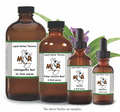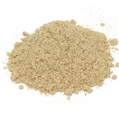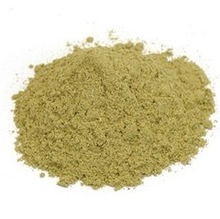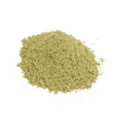 Loading... Please wait...
Loading... Please wait...- Home
- Bulk Herbs
- Herbs (O-P)
- Oregano Leaf Powder
- Home
- Herbs - Organically Grown & Wild Crafted USA
- M N O
- Oregano Leaf Powder
Product Description
Oregano Leaf, Powder
Organically Grown - USA
Also Known As – Origanum vulgare
Overview - Oregano has been used for centuries, originally by the Greeks, for curing a variety of ailments. The ailments that oregano was used to treat in ancient times include a vast range of conditions from convulsions to heart failure. In the 19th century, herbal doctors proscribed oregano as a general well being tonic as well as to promote menstruation. The name oregano originates from the two Greek words oros and ganos. Oregano is also known by its other common names, wild marjoram and marjoram.
Medicinal Uses - Oregano is used for respiratory tract disorders such as coughs, asthma, croup, and bronchitis. It is also used for gastrointestinal (GI) disorders such as heartburn and bloating. Other uses include treating menstrual cramps, rheumatoid arthritis, urinary tract disorders including urinary tract infections (UTIs), headaches, and heartconditions.
Other Uses – In foods and beverages, oregano is used as a culinary spice and a food preservative
Parts Used – Leaves
Precautions - None Known
Preparation and Dosage - Oregano can be administered in a variety of ways to obtain its beneficial effects. A common way to administer oregano is by steeping a tea. The tea can be made with fresh or dried oregano. Approximately 1 to 2 teaspoons, which is 5 to 10 grams, should be steeped in hot water for approximately 10 minutes. The recommended dosage of this tea is up to three times daily.
- Oregano oil can be applied topically for treatment of microbial infections, such as athlete's foot or other fungal based infections. The oil needs to be diluted by 50% or more prior to application and it can be applied twice daily. The oil should not be used internally as this has not been studied from a safety aspect.
Disclaimer - The information presented herein by Mountain Maus’ Remedies is intended for educational purposes only. These statements have not been evaluated by the FDA and are not intended to diagnose, cure, treat or prevent disease. Individual results may vary, and before using any supplements, it is always advisable to consult with your own health care provider.
















